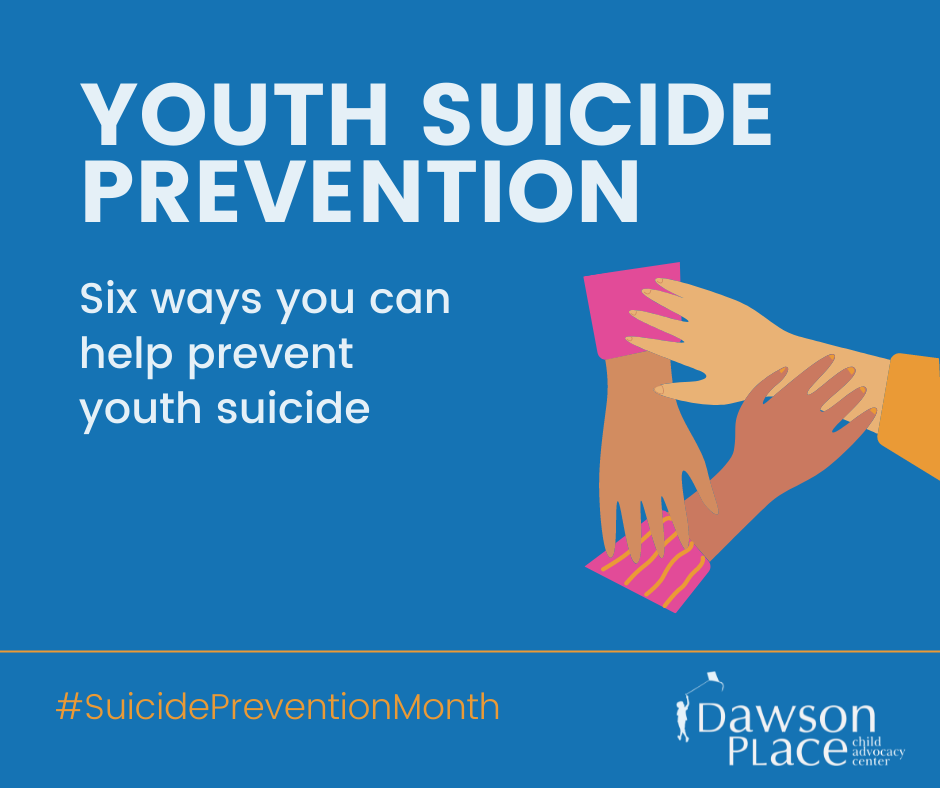
:September is #SuicidePreventionMonth. In the United States, suicide is the second leading cause of death for young people between 10 to 24 years old. Parents, guardians, teachers, coaches, and other community leaders can all help prevent suicide and provide positive support for youth struggling with mental health. Here are 6 ways you can help the youth in your life and prevent suicide.
How Adults Can Help
Know the Risk Factors: There are several risk factors that may increase the likeliness that a child will consider, attempt, or die by suicide. Some of these risk factors include: mental health disorders, history of physical or sexual abuse, family history of suicide, local clusters of suicide, and a lack of social support.
Take Youth Seriously: Far too often, the mental health struggles are pushed off as not important or exaggerated, even that they are a “cry for attention.” If a child or teen comes to you expressing thoughts of self-harm or suicide, believe them and assist them in finding help.
Listen with Empathy: To you, a child or teens problem may seem insignificant, but what seems small to you may be severe to them. By minimizing or diminishing a youth’s feelings, you increase the sense of hopelessness in their life. Additionally, you may not know the entirety of their situation; they may be experiencing a loss in the family, have an unstable or unsafe home life, or experience bullying. Always listen openly and provide comfort and support.
Know the warning signs: Sometimes individuals contemplating suicide will tell you outwardly, but other times there may be other signs such as extreme mood swings, withdrawing or isolating themselves, talking about being a burden to others, or talking about feeling hopeless with no reason to live. If you see any of these signs, it is imperative to contact the 24hr crisis line, seek mental health counseling for the child or teen, and provide support.
Take Action: If a child or teen comes to you expressing suicidal thoughts, it is imperative to take action. Show them they are important and cared for, openly talk about suicide, find them additional mental health support, and reduce access to means of self-harm.
Continue to Check In and Provide Support: Even if the child has stopped experiencing suicidal thoughts and is no longer exhibiting the warning signs, continue to check in, ask about their mental health, and provide support.
We can all prevent youth suicide by starting the conversation and removing the stigma surrounding mental health and suicide.
If you or someone you love needs help, call or text the Suicide Prevention Lifeline 24hrs a day:
1-800-273-8255
You are not alone.
